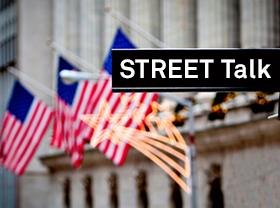The coronavirus pandemic is pushing digital adoption five years into the future, increasing technology spending among traditional banks, which could set the stage for financial technology and bank mergers later this year.
With most of the country operating under stay-at-home orders in recent months, banking customers have been forced to become more reliant on digital channels. Todd Baker, senior fellow at Columbia University and managing principal at Broadmoor Consulting, said during a recent webinar we hosted that the unusual set of circumstances would cause digital adoption to "pop up significantly."
"The banks have a bit of an innovators' dilemma problem," Baker said. "Many of their most profitable customers are older and have been up until now less prone to adopt digital solutions and more interested in the other things the branch provides. The dilemma for the banks is should they be investing in pushing their [customers] out of the branch."
Greg Smith, managing director and director of research at fintech-focused investment bank FT Partners, said during the webinar that the real challenge with any innovation is getting customers to take the first step and try the new technology. The pandemic, however, has forced many customers to make that leap and access banking services through digital channels.
Several large banks echoed that sentiment at a recent Morgan Stanley investor conference. Citigroup Inc. CFO Mark Mason said the "idea of digitization" recently played out in all the ways the company serves its clients at a quick pace.
"We've seen a lot of significant changes that are taking hold. Most of it, in part, is an acceleration," Mason said at the event.
Greg Carmichael, chairman, president and CEO at Fifth Third Bancorp, told a similar story at the same Morgan Stanley conference, noting that digital adoption had accelerated, with 74% of financial transactions coming through digital channels today compared to 69% before the pandemic began.
"What I would tell you the pandemic has done is kind of accelerated digital adoption by our customers, and in some cases, our employees, by about five years," Carmichael said at the event.
Fintech companies serve customers purely through digital channels, which arguably positions them better for the current environment than traditional banks. Still, Smith stressed the importance of companies having well-established brands that can build trust with customers and said only firms with those attributes like Chime Financial Inc. will benefit meaningfully from the increased digital adoption.
Baker said business-to-business players and software providers to banks will continue to "shine." Digital lenders, however, have already faced considerable challenges amid the market dislocation, seeing their stock prices come under severe pressure as delinquencies rise.
Some fintechs have demonstrated the speed offered through technology by taking advantage of stimulus programs like the Paycheck Protection Program, or PPP. Phil Goldfeder, senior vice president of public affairs at Cross River Bank, which partners with a variety of fintechs, noted that his bank has more than outpunched its weight in the PPP, lending $5 billion in the program or nearly double its balance sheet.
"Technology didn't just enable us to compete. It enabled us to beat some of the largest banks in the country," Goldfeder said during the webinar.
Perhaps with some of that success in mind, Smith at FT Partners said some more traditional institutions are currently looking at deals to purchase fintechs to better serve their customers.
Baker also sees more fintechs and banks coming together. He said fintechs that have expanded their product offering are considering obtaining bank charters simply because they want stable funding. LendingClub Corp. sought to do that with the planned purchase of Radius Bank; Varo Money Inc. received approval for deposit insurance from the Federal Deposit Insurance Corp.; and California proposed a law that could make it easier to charter industrial loan companies in the state.
Baker said banks could be interested in acquiring fintechs in cases where they can move the customer base over to their franchise. However, he said all potential transactions are undercut by fear given the current economic turmoil.
Any deal would need the support of regulators. Cross River's Goldfeder has regularly talked with lawmakers and regulators about fintechs becoming more bank-like and was encouraged about the path ahead, at least among federal banking regulators who seem more receptive to fintech.
"It's either innovate or die and I think that regulators are starting to see that trend," Goldfeder said.

"Street Talk" is a podcast hosted by S&P Global Market Intelligence.
Listen on SoundCloud,



